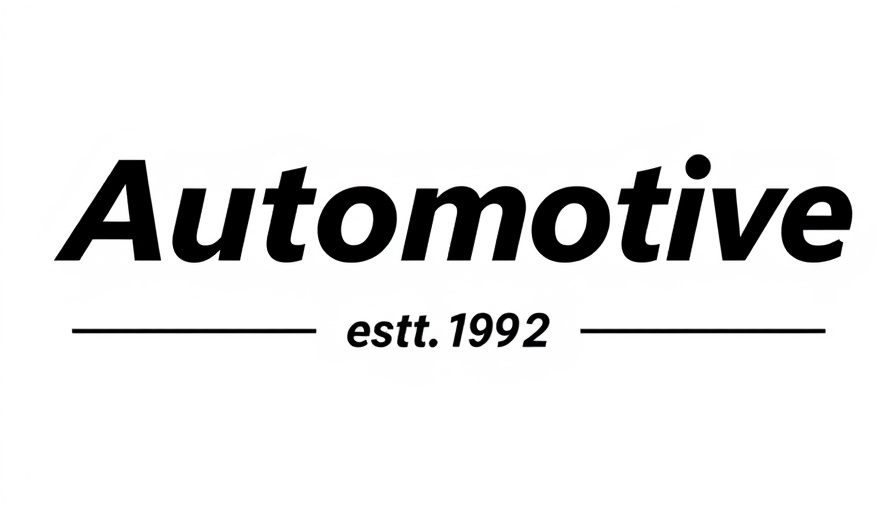
Understanding the Impact of Proposed Tariffs on Imported Cars
The recent announcement regarding a proposed 25% tariff on all imported vehicles has sent shockwaves through the automotive industry. For dealership owners and general managers, this change is not just a headline; it signifies a potential shift in sales strategies, cost structures, and inventory management. Understanding how these tariffs will trickle down to every model is essential for anyone in the automotive retail space.
Economic Implications of Tariffs on Consumers
The immediate effect of these tariffs will likely be on the price of vehicles. Automakers may choose to pass on the increased costs to consumers, leading to higher prices across the board. According to industry experts, this could result in an average price increase of $5,000 for new cars, which could influence buying decisions profoundly. The rising costs coupled with shifting consumer preferences towards more budget-friendly vehicles could reshape the market.
Shifts in Inventory and Model Offerings
For dealers, the increased tariffs might prompt a reevaluation of inventory strategies. Some models may become less viable if their prices rise excessively due to tariffs. Dealerships might consider focusing on domestically produced vehicles, which would help mitigate the impact of tariffs and keep pricing competitive. This transition will require strategic thinking and adaptability from dealership management.
Consumer Behavior and Market Trends
The proposed tariffs could lead to a notable change in consumer behavior. If prices spike, many buyers may delay their purchases or opt for used vehicles instead. Historical data suggests that during times of economic uncertainty, consumers lean towards more affordable options. This trend highlights the need for dealerships to anticipate shifts in inventory demands and adjust their marketing strategies accordingly.
Leveraging This Time for Strategic Growth
Amid these trying circumstances, dealers have a unique opportunity to reassess their business models. Enhancing customer engagement and promoting financing options might attract buyers despite increased costs. Additionally, focusing on providing exceptional customer service and experiences could create loyal clients who see the value in purchasing from your dealership even as market conditions fluctuate.
Preparing for the Future Amid Uncertainty
The automotive landscape is rapidly evolving, and the proposed tariffs signal the importance of adaptability and foresight. By keeping abreast of these changes and understanding their implications, dealerships can maintain their competitive edge. Adopting innovative sales approaches and emphasizing value will be critical in navigating this new terrain.
In conclusion, while the prospect of tariffs poses challenges, it also opens doors for strategic growth and development in the automotive sector. Embrace these changes and prepare for impactful shifts in the market.
 Add Row
Add Row  Add
Add 

 Add Row
Add Row  Add Element
Add Element 




Write A Comment